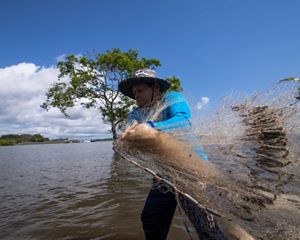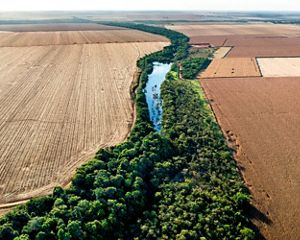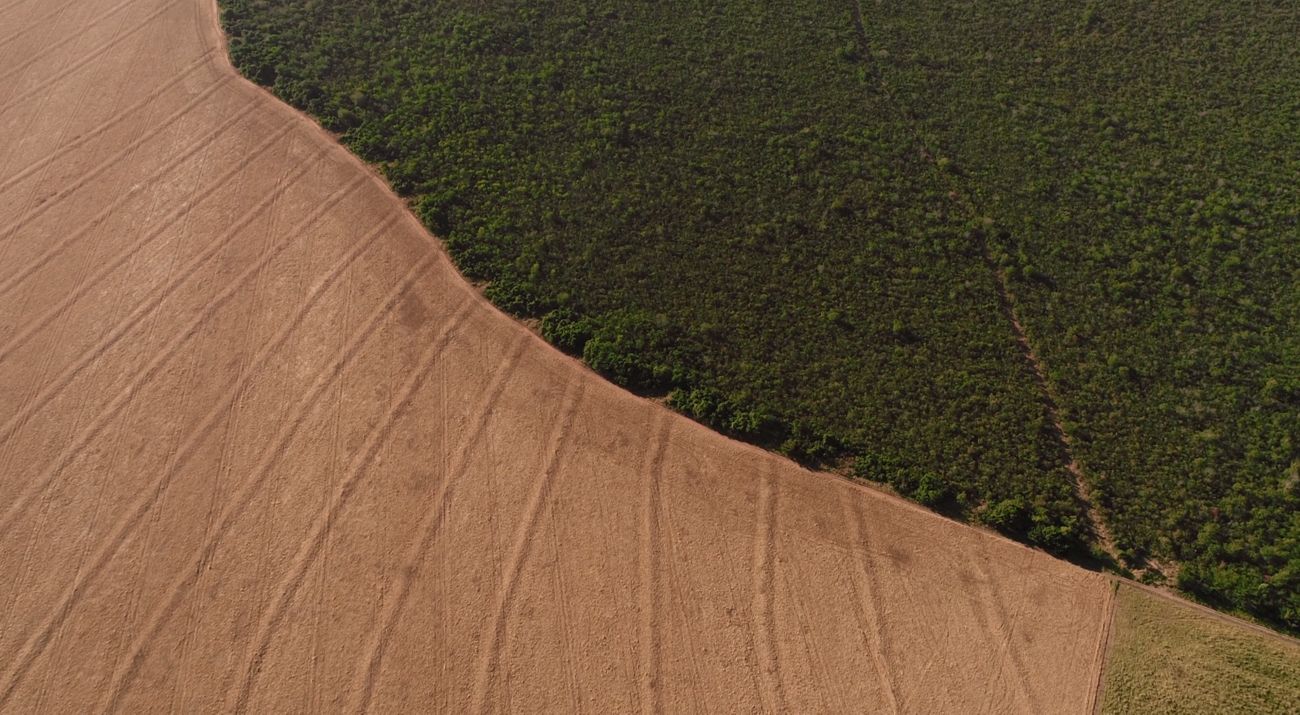
Sustainable Financing in Amazon, Cerrado and Chaco
Financial institutions and agribusiness commit $3 billion to accelerate conversion-free cattle and soy production in South America
Eight financial institutions and agribusiness companies have announced a commitment worth $3 billion – with more than $200 million in disbursements by 2022 – to soy and cattle production that is free of deforestation and land conversion in South America. In so doing, these companies have become the first signatories of the Innovative Finance for the Amazon, Cerrado and Chaco (IFACC) initiative. The initiative’s goal is to reach $10 billion of commitments and $1 billion in disbursements by 2025. The companies – &Green Fund, AGRI3, DuAgro, Grupo Gaia, JGP Asset Management, Sustainable Investment Management and VERT – announced their financial commitments, and signing of the IFACC Declaration, at the World Leaders’ Summit at COP26 as part of their plans to shift commodity production in the region to a more sustainable model.
Cattle and soy production are among the biggest drivers of deforestation and conversion of natural vegetation in these valuable ecoysystems, so expansion of investment in ‘forest-positive’ production models is critical. It complements other efforts such as supply chain sourcing commitments, traceability systems, reform of land-use and trade policies, and jurisdictional approaches. The finance committed from these private entities will accelerate the flow of capital to farmers to transition to more sustainable business models, including expansion of production over degraded pasturelands and raising yields – for example, through sustainable intensification of cattle ranching.
The Amazon, Chaco and Cerrado face significant risk of conversion, with global demand for agriculture rising at a tremendous rate – more than twice the rate of increase in the human population. At the same time, growing international demand for deforestation-free products, regulatory changes in consumer countries, and investor expectations are also driving the need for a major transition in food production systems. New collaborations on finance such as IFACC can help accelerate the change required to meet these emerging trends.
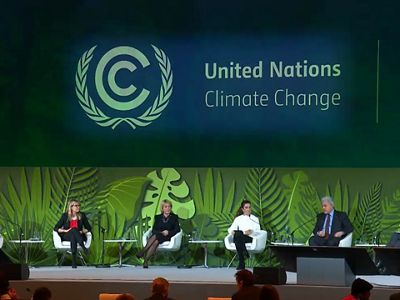
Nanno Kleiterp, Chairman of &Green’s Board of Directors, &Green said: “We’re working on the most difficult and complex commodities, and that’s where we want to make an impact. Ultimately, we want to show that inclusive, sustainable and deforestation-free commodity production can be commercially viable.”
Nick Moss, Director, AGRI3 Fund said: “Agriculture and forests can play such a critical in role in climate change mitigation. But scaling business models which promote sustainability and conservation in the land use sector requires the mobilisation of significant amounts of capital. AGRI3 was built on the premise of being able to direct the huge resources of the financial sector into supporting investments which promote sustainable agriculture, forest conservation and rural livelihoods. Joining IFACC, we see a huge opportunity to be able to build on our current work, develop new partnerships and initiatives and share knowledge, with the overall aim of mobilising more finance into sustainable land use in the Amazon and Cerrado region. AGRI3 will contribute to the overall aims of IFACC by providing guarantees to commercial lenders to support loans to eligible sustainable land use projects in the region. We are excited to work with the founding organisations and other signories, now and in the future.”
Fernanda Mello, CEO, DuAgro said: “DuAgro was born with the clear objective of helping the rural producer to thrive through socially and environmentally responsible agricultural financing. Becoming a signatory to IFACC and therefore being part of a global pact for the sustainability of food production, reinforces our initial commitment and encourages us to set firm goals regarding our role in this new world. We don't just want to be part of the ongoing change: our desire is to build what still needs to be done to make it happen globally. We will use our market experience and our privileged position, of those who deal with the entire agri chain and the investors who finance it, to map and engage green bond issuance opportunities in Brazil. By 2022, we intend to issue a minimum of R$30 million in green bonds. By 2025, 30% of the entire financial volume of our operations will be in compliance with IFACC requirements, and over the next five years, the percentage is expected to reach at least 35%.”
João Paulo Pacífico, CEO, Grupo Gaia said: “We are very honored to be one of the IFACC's signatories and to contribute to such an important environmental issue. In a few years, we will look back and wonder how some companies have not signed the IFACC declaration, a commitment that is extremely urgent for the world.”
José Pugas, Partner and Head of ESG and Agribusiness at JGP Crédit, said: “We are the first generation that is fully aware of their role in the planet’s transformation, be it positive or negative. We, financial leaders, have a duty to consciously use our capacity for transformation through capital, acting proactively to accelerate the transition towards the green economy. By joining IFACC, we at JGP accept our role in this critical moment for humanity. We invest our efforts in the belief that in initiatives like this, which combine the productive stimulus with the need for environmental restoration, we will be able to generate the greatest impact and carry out the social function of capital more effectively.”
Pedro Moura Costa, CEO, Sustainable Investment Management, said: “Through the use of innovative financial approaches, Sustainable Investment Management (SIM) aims at providing financial incentives to farmers committed to halting deforestation associated with expansion of soy cultivation in the Brazilian Cerrado. The Responsible Commodities Facility will create a series of debt funds, capitalized through the issuance of green bonds, to direct finance to sustainable agricultural practices in the region, contributing to the objectives of IFACC.”
Martha De Sa, CEO, VERT said: “The step we took in becoming IFACC signatories says a lot about the way VERT views agricultural finance in Brazil: a potentially gigantic market whose expansion necessarily involves strengthening the socio-environmental commitments of the entire chain. In addition to setting objective goals, such as the issuance of at least R$100 million in green bonds yet next year, VERT is committed to working for the education of the market in which it operates: on one hand, encouraging the adjustment of rural producers to the parameters of IFAAC, and on the other, promoting the availability of good greens for impacting investors.”
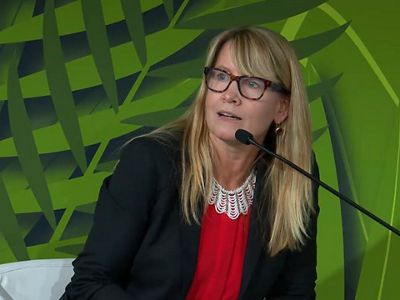
About IFACC
IFACC is an initiative, launched at Glasgow in November 2021, from The Nature Conservancy (TNC), Tropical Forest Alliance (TFA) and United Nations Environment Programme (UNEP) that bring complementary capabilities to scale up financial mechanisms such as farm loan products, farmland investment funds, corporate debt instruments and capital market offerings. Numerous mechanisms are emerging to do this, but the pace of progress is too slow. We estimate a need for as much as $30 billion in these sectors over the course of the decade, versus hundreds of millions available today. IFACC is working to accelerate financing in two ways:
- IFACC brings together leading banks, companies, investors, asset managers to signal a collective commitment to lend and invest more in these areas and to indicate an individual commitment from each signatory as to what they will contribute to expanding finance in key sectors.
- IFACC works with signatories to implement and scale up new finance mechanisms, including support on environmental and social management, connections to concessional capital groups and other capital providers for the longer-term more patient capital needed for these transitions, sharing the best intelligence on who is doing what and what is working, and making accessible the best available data and studies on the business case and impacts
IFACC has been endorsed as a Catalytic Initiative by the CEO Principals of the Glasgow Financial Alliance for Net Zero (GFANZ), the global coalition of leading financial institutions committed to accelerating the decarbonisation of the economy, chaired by Mark Carney the UN Special Envoy on Climate Action and Finance and anchored in the UN’s Race to Zero campaign.
